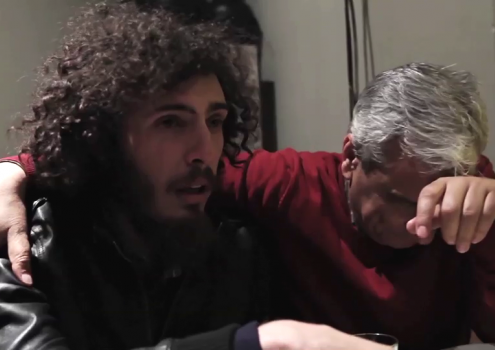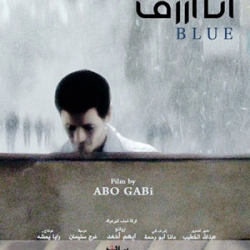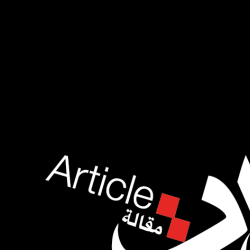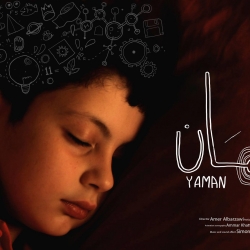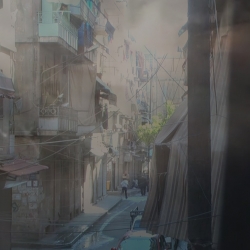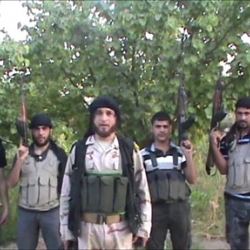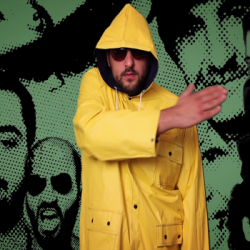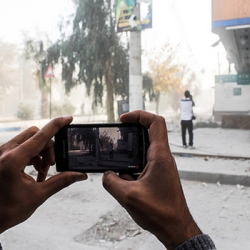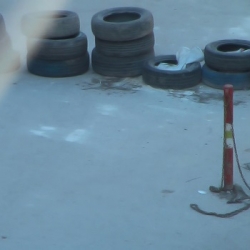Syria, “Our terrible country” and our disappointment with the West, by Graham Douglas
01/12/2014
The well-known Syrian writer and intellectual Yassin Haj Saleh left his home in Douma, met up with two film-maker friends in Raqqa, and all three continued to Turkey, filming their journey as they went. Yassin’s wife Samira remained behind, until Yassin could return for her – she has since been abducted.
Graham Douglas
Ziad Homsi has known Yassin since Yassin moved to Douma, and together with his friend Mohammed Ali Atassi, the two film-makers accompanied Yassin on this journey, searching for a safe route by which to return for Samira.
Yassin al Haj Saleh is a prominent intellectual and dissident, who was imprisoned for 16 years by the regime of Hafez Al-Assad, father of the current president of Syria, who was responsible for the massacre of over 10,000 members of the Muslim Brotherhood in Hama in 1982.
Yassin has written extensively about Syrian politics, Islam and western inaction, and discussed the current situation in detail in this interview.
His stance is also against the jihadist groups, whom he sees as a convenient means for the west to justify their interventions as part of the war on terror, while ignoring the crimes of the Assad regime
His writings are available in English on Joumhouriya, and Hamisch is the website of a cultural centre which Yassin and other Syrian and Turkish inteelectuals, writers and artists created in Istanbul
“Our Terrible Country” was shown as part of the Investigations thread during the recent DocLisboadocumentary film festival in Lisbon, now in its 12th edition, which received a record 25,700 visitors. By its nature this was per forza a low-budget film with real people and no script, and the story has not had a happy ending, as the news arrived of Samira’s abduction by presumed Islamist militants.
What it is like to live in the unpredictable and violent situation that exists in Syria today is graphically described here, as it was in the Channel Four Dispatches film Children on the Frontline, but from a different point of view.
What awaits refugees who succeed in escaping is often more insecurity and tension, although generally without arms, as was shown in another film at DocLisboa, Evaporating Borders.
And to add to their pain, Britain and Italy have cynically cut their search and rescue missions in the Mediterranean – ‘so as not to encourage more refugees’.
Mohammed Ali Atassi replied to The Prisma’s questions by email.
Ziad is much younger than Yassin, how do the hopes of these two generations for the Syrian Revolution differ?
While Yassin is from the older generation that has a very clear and conscious leftist political background, Ziad from the younger generation joined the revolution not with a clear political vision, but to strive for more general values such as dignity, freedom and pluralism. While Yassin decidedly did not take up the arms, Ziad considered at a point where he had lost many friends and his home town Douma came under attack, that arms might be at this point a justified means.
However, both share a joint vision in the long run and hopes for their country, not only the revolution in itself, which is to build a free, democratic and pluralistic country where different opinions can be expressed and be debated.
What was it like to live the experience of this journey under the eye of another person, the camera?
It is a question that should rather be answered by Yassin Haj Saleh than by myself. With regard to Ziad, I think the fact that he was filmed by me – the other director – was uncomfortable in the beginning, as he was used to being the one behind the camera. But with time, in Istanbul and after he was freed from detention by the Islamists, I felt that it was also a means for him to express what he had lived through during his detention.
What are the “bad things inside us” which were mentioned twice during the film?
The bad things are the things every human being has inside of himself/herself. It is the inner struggle that each of us leads in all their complexity and with all its contradictions.
The film took over a year to make, is there still such a thing as the Syrian Revolution which began with the Arab Spring ?
Yes, there is definitely still a Syrian revolution ongoing, and the many initiatives, activities and incredible sacrifices many Syrian activists, artists, intellectuals and ordinary people undertake inside and outside Syria are the proof of this and give us hope. At the same time, we also have to acknowledge that a civil war is ravaging our country in various parts. So I cannot answer this question with a simple yes or no, as the situation is more complex than this.
What do you think young westerners are looking for when they go to fight in Syria? Are they deluded?
I am convinced that the source of the problem is not specifically linked to Syria, but it is rather a Western question of integration, exclusion and the place of Islam in Europe. It is clear that most of these young people joined the fight as they felt that they lacked a clear identity and role to play in their lives. I think Western societies should start asking themselves what is going wrong in their countries, rather than trying to narrow down the dimension of this phenomenon to Syria.
Yassin said the place of a writer is among his people –does he feel his place is now among the refugee diaspora ? What is he writing about now?
Yassin now certainly feels that he’s part of all Syrians who were forced to exile. However, he did not stop his activity as a writer on Syria and initiator of new thinking. Thus, he has founded the cultural house and meeting point Hamish which is based in Istanbul and seeks to bring together Turks and Syrians to debate about society, culture and other aspects related to Syria. Moreover, he is the initiator of the now well-respected Joumhourya magazine that publishes articles and debates by renowned Syrian and Arab thinkers.
Syria was viewed as the most liberal and open Arab country. How do Syrians view the west and its politics now?
We feel a strong disappointment and feeling of abandonment, as we discover that so-called universal values of human rights, and humanitarian intervention are no more than empty words. The so-called Western model of democracy and values has lost all its credibility with Syrians, which is a deplorable and worrying development.
It has been claimed that the long term plan of the US and NATO is to split Iraq into 3 new countries, a Kurdish north, a Sunni middle and a Shia south with divided capital in Baghdad. How do you see the future evolving?
One quick answer: NO reconciliation is possible if Assad and his entourage don’t leave power.
Are you working on a new film?
Right now, no. Need to rest first.



